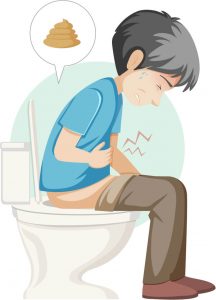
So let’s have a look at what causes stress?
There are so many things that can cause us to experience stress. There’s emotional stress caused by losses and bereavements, PTSD, Post Traumatic Stress Disorder, anxiety, and depression.
We can also experience cognitive stress, some of this relates to irrational demands and having a high expectation of self as well as of others. Catastrophic thinking, and lack of gratitude. Taking on the role of being a victim as well as blaming others.
There’s oxidative stress which is an imbalance between free radical production and the body’s ability to counteract their damaging effects through neutralisation with antioxidants. Oxidative damage is the harm sustained by cells and tissues that cannot keep up with free radical production. This can be due to diet and lifestyle factors, but also genetics can play a role, which means that diet and lifestyle must take precedence, as these are what affect our genes.
Then we have toxic stress, from heavy metals, including mercury from amalgams and also fish. Toxic burdens also come from the onslaught of many other toxins we mostly don’t consider, such as halogens, food additives, herbicides, pesticides, fungicides, insecticides, from non-organic food, trans fats from takeaways, ready meals, margarine, vegetable oils, crisps, biscuits and cakes and then there are petrochemicals too.
We’re also subjected to energetic stress from electrosmog, the invisible electromagnetic radiation resulting from wireless technology and mains electricity; mobile phones, mobile phone masts, and cordless baby alarms to name a few.
If we have poor joint flexibility, hypermobility, or structural and postural abnormalities, and obstructions, this is a structural stress on the body.
Pain of any kind causes sensory stress, whether a sensory processing defect or even phantom pain.
Prevalent in this day and age is metabolic stress, caused by our 21stcentury western diet. Too much junk food, bad fats and sugar, as well as a lack of exercise all lead to metabolic syndrome, diabetes, blood sugar dysregulation, and poor methylation.
Those with irritable bowel syndrome (IBS) or IBD, irritable bowel disease may have infectious stress from either a virus, bacterium, parasite, or yeast infection.
Other factors to consider helping with IBS treatments
- Insomnia, sleep dysregulation and sleep apnea.
- Inadequate liver detoxification, deficient antioxidant intake, low water intake, low fresh air, vein or arterial blocks.
- Food allergies and food sensitivities, as well as contact allergies, autoimmune diseases, and inflammatory disorders.
- Ageing, PMS, thyroid dysfunction, hormonal imbalances.
- The inability to live in the now, as well as a sense of meaninglessness, a lack of spirituality, and a lack of purpose in life, can cause a huge amount of stress.
- SIBO, small intestinal bacterial overgrowth and dysbiosis, an imbalance in the bacteria in the gut.
We have stress all around us, the above list is by no means extensive. What’s important is that we find a way to manage our stress. Otherwise it will affect our health. Some, myself included, are predisposed to stress. I know this through my DNA analysis. I don’t clear adrenaline very well, so it builds up. I’m mindful of this and engage in mindfulness activities as well as meditation and yoga. I find walking massively helps too.
Starting your day in gratitude is a great way to shift negative energy and help reduce stress. Just 5 to 10 minutes everyday being quiet in medication or a similar exercise that takes you away from negative thoughts, lets you be still is a proven way to reduce cortisol levels and alleviate stress.
If you want to learn more about IBS treatment and you are in the area of Stockport, you can visit Transform Your Gut – IBS Recovery Clinic. We have the best and qualified coach to address your health issue. You can call 07712 620909 or contact us for an appointment here!

